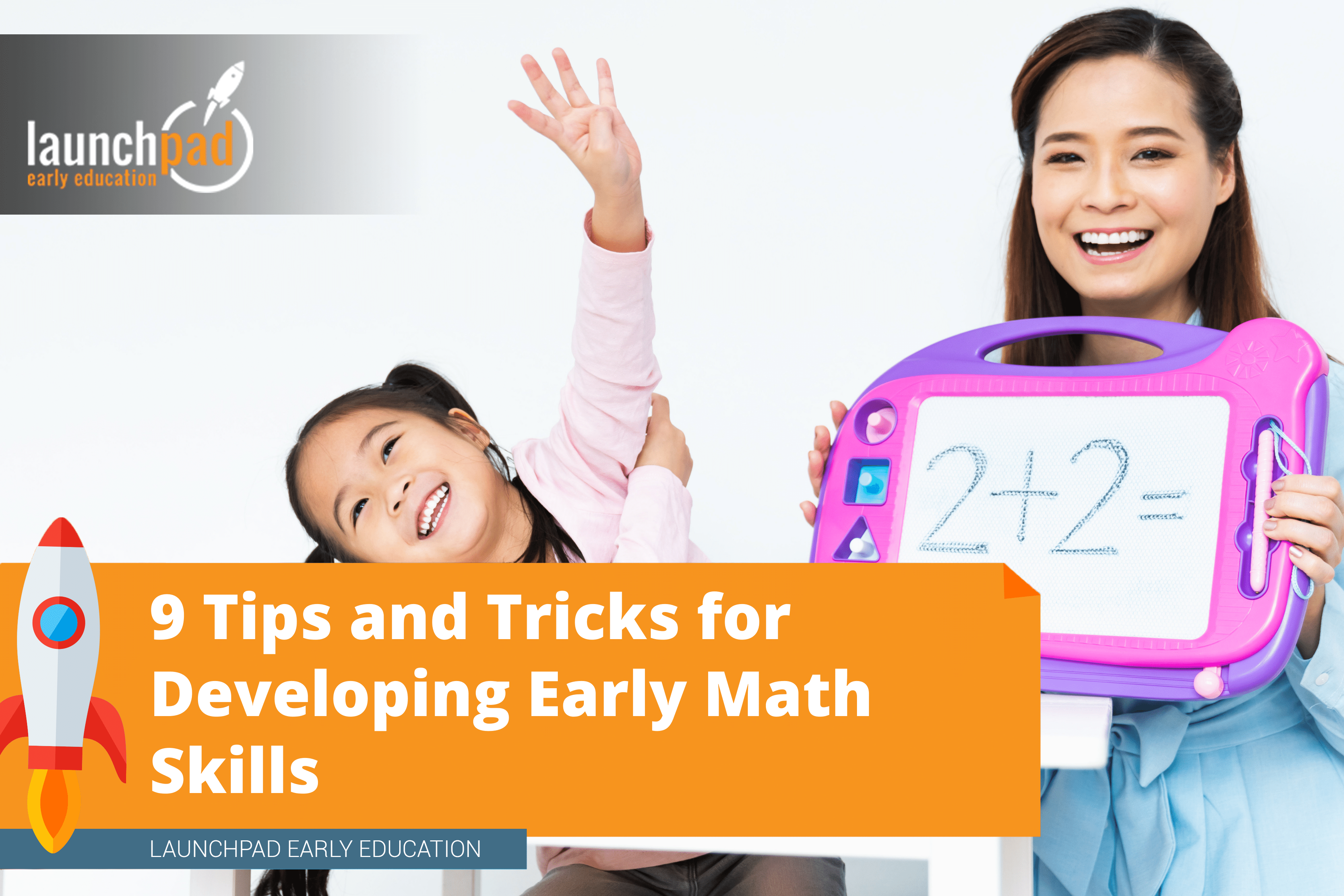Young children can begin to develop early math skills even before they go to school. Basic math concepts start with counting, recognizing numbers and shapes, and learning basic addition and subtraction skills. When kids solve puzzles, play games, and engage in different activities throughout the day, they are faced with a variety of basic math concepts, which help to build the foundation of early math skills.
As parents, we play an essential role when it comes to enriching the development of our children’s early math skills, which will give them a strong head start for school.
Start counting!
It’s never too early to teach your little one how to count. You introduce counting to your child from an early age. Count everyday objects, like the number of stairs you climb, the number of crackers in a package, or the leaves on a tree. As kids get older, you can start to introduce simple addition and subtraction problems.
Play games that promote math skills
Learning math doesn’t have to be difficult or boring. You can incorporate fun games that help make math more exciting! In fact, there are plenty of fun games that help to enrich the development of early math skills. Try games like Candyland, Chutes and Ladders, or Operation. These types of games involve counting, rolling dice, and problem solving.
Help children learn about shapes
When kids learn to identify shapes at an early age, it helps them gain a better understanding of geometry and other math concepts they’ll need down the road. Show your child different shapes and ask what each shape is called. You can also play games that involve shapes, like Candyland or Chutes and Ladders.
Introduce basic addition and subtraction
Once your child is comfortable with counting, you can start working on basic addition and subtraction concepts, which help to build a basic foundation for more advanced math skills. You can find simple addition and subtraction worksheets online to help your child practice these skills. There are also plenty of other materials available at your disposal.For example, try using popsicle sticks to represent numbers and invite your child to use them to add and subtract. You can also have your child subtract cookies from the amount left on a plate.
Encourage children to solve puzzles
Solving puzzles is another great way to help kids develop their problem-solving skills, which is another important foundational math skill. Puzzles can be found in all shapes and sizes. Find one that best suits your child’s level and interests. As kids get older, you can move on to harder puzzles that involve more advanced problem-solving skills.
Let children play with math apps
There are plenty of great math apps that are fun and educational for kids. Choose an app that incorporates basic addition, subtraction, multiplication, and division concepts. Letting children play with these apps will help them gain a stronger grasp of these concepts.
Find ways for your child to learn through everyday activities
There are many opportunities for kids to practice their math skills in everyday life. For example, when you’re cooking, ask your child to help you measure ingredients. Or have children count how many spoonfuls of sugar they want in their cereal. There are endless opportunities for everyday activities to help kids learn math skills.
Practice sorting and organizing
These are also important concepts that lay the groundwork for basic math skills. Kids who can sort and organize objects often gain a better understanding of basic math concepts. You can help your child by practicing sorting different objects into groups, like colors, sizes, or shapes. You can also help them by organizing items in their room or toy box.
Take a nature walk
There’s also plenty of math found in nature! Take a nature walk together and you’ll find all sorts of opportunities for your little one to practice math. When you’re outside, point out different objects and have your child count them. This is a fun and easy way to introduce basic math skills. You can also ask your child to count how many leaves are on a tree, how many flowers are in the garden, or how many bugs are crawling on the ground.
Developing foundational math skills is crucial for each child’s success in school and beyond. These nine tips provide a great starting point to help your child excel in math.
At LaunchPad Early Education, our mission is to build and strengthen your child’s skills and support your family through Christ-centered education. Our staff members are experienced, kind, and loving educators and teachers who have partnered with parents to help children prepare for the future, and become their best selves! Contact us to learn more.


